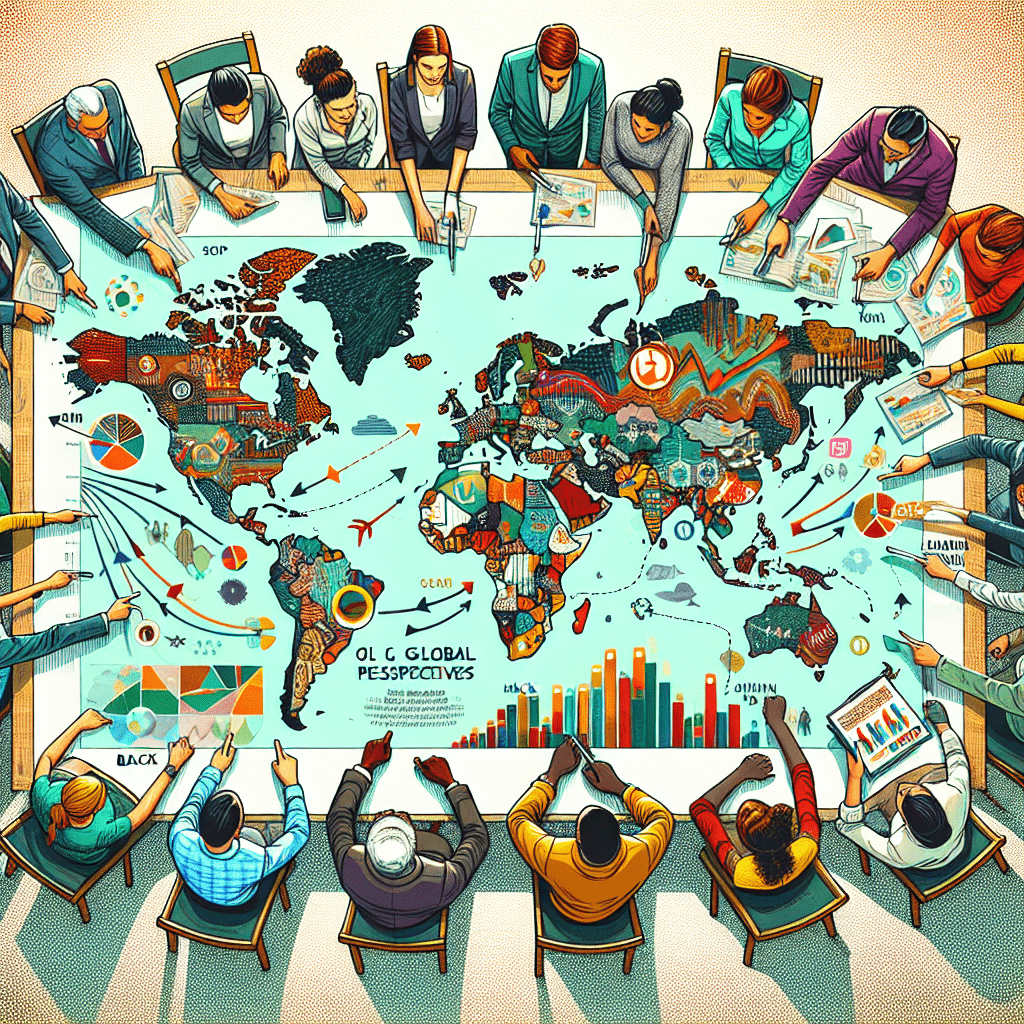In an interconnected world, geopolitical changes can have profound impacts on market trends. The relationship between international relations and economics is intricate; events that occur in one part of the globe can reverberate across continents, shaping financial markets, consumer behavior, and investment patterns. This article explores the dynamic interplay between geopolitics and market trends, providing insights into how businesses and investors can navigate these changes effectively.
The Interplay of Geopolitics and Economics
Geopolitics encompasses the influence of geographical factors on politics and international relations. It involves the strategic positioning of countries and the resources available to them, affecting areas such as trade agreements, political stability, and conflict resolution. These geopolitical factors can directly influence market trends in several ways:
- Trade Agreements: Changes in trade policies can significantly affect market access for various goods and services.
- Political Stability: Regions with stable governments tend to attract more foreign direct investment compared to those with political unrest.
- Resource Availability: Nations rich in natural resources can leverage these resources for economic growth and market influence.
- Technological Advancements: Geopolitical circumstances can foster innovation and technological developments that shift market dynamics.
Current Geopolitical Trends
Several key geopolitical trends are currently shaping market dynamics. Understanding these trends can empower businesses and investors to make informed decisions.
1. Rise of Populism
Across the globe, populist leaders are gaining traction, often focusing on nationalism and anti-globalization sentiments. This shift alters the landscape for international trade, potentially leading to trade wars, tariffs, and changes in consumer preferences. Markets that once thrived on global trade may see a shift towards localized supply chains, impacting pricing strategies and operational models.
2. Climate Change Initiatives
Climate change has emerged as a significant geopolitical issue, prompting countries to adopt stricter environmental policies. As governments commit to reducing carbon emissions, businesses must adapt to new regulatory landscapes. The push for sustainable practices is influencing market trends towards renewable energy, electric vehicles, and green technologies, thereby reshaping entire industries.
3. Technological Rivalry
The race for technological supremacy, particularly between the U.S. and China, is reshaping global markets. Investments in Artificial Intelligence (AI), 5G technology, and cybersecurity are particularly significant. Companies in nations prioritized for technological investment can gain a competitive edge, influencing global market dynamics and investment flows.
4. Supply Chain Disruptions
Recent geopolitical events, including the COVID-19 pandemic and tensions between major powers, have exposed vulnerabilities in global supply chains. Companies are increasingly reevaluating their reliance on specific countries for manufacturing and sourcing. The shift towards supply chain resilience is expected to redefine market strategies across various industries.
Regional Case Studies
To further understand how geopolitical changes influence market trends, examining specific regions can provide valuable insights.
North America
The United States-Mexico-Canada Agreement (USMCA) has reshaped trade relationships in North America. Companies are now adjusting their strategies to align with the new policies, which impact everything from tariffs on goods to labor laws. Increased trade relations can lead to economic growth in the region, positively influencing stock markets and investment opportunities.
Europe
The European Union is navigating the complexities of Brexit and its implications on trade with the UK. Companies are reassessing their market strategies and supply chains in light of new regulations and potential tariffs. Countries within the EU that maintain strong trade relationships are likely to see increased foreign investments.
Asia-Pacific
The Asia-Pacific region, particularly China and India, is experiencing rapid economic growth. Geopolitical tensions between these nations and others, such as the U.S., can lead to market volatility. However, the rise of these economies presents numerous opportunities for businesses looking to expand in emerging markets.
Implications for Businesses and Investors
The dynamic nature of geopolitical changes necessitates that businesses and investors remain vigilant and adaptable. Here are several strategies to navigate these complexities:
- Diversify Supply Chains: Companies should consider diversifying their supply chains to mitigate the risks associated with geopolitical tensions.
- Stay Informed: Continuous monitoring of geopolitical developments can help businesses anticipate market changes and adjust strategies accordingly.
- Engage in Scenario Planning: Companies should engage in scenario planning to understand potential future geopolitical landscapes and their implications for market trends.
- Embrace Sustainability: Adopting sustainable practices can not only align with global initiatives but also attract environmentally conscious consumers.
Conclusion
Geopolitical changes are a powerful force that shapes market trends across the globe. Understanding the interplay between international relations and economics is crucial for businesses and investors seeking to thrive in this complex environment. By examining current trends, regional dynamics, and implementing strategic adjustments, organizations can better position themselves to navigate the ever-evolving landscape of global market trends.
FAQs
1. How do geopolitical changes affect global markets?
Geopolitical changes can lead to shifts in trade policies, economic stability, and resource allocation, all of which impact global markets.
2. What are some examples of recent geopolitical changes?
Recent geopolitical changes include the rise of populism in various countries, Brexit’s impact on the European Union, and tensions between the U.S. and China over technology and trade.
3. How can businesses prepare for geopolitical risks?
Businesses can prepare for geopolitical risks by diversifying supply chains, staying informed about global developments, and engaging in scenario planning.
4. What role does sustainability play in market trends?
Sustainability is becoming increasingly important as consumers and governments push for environmentally friendly practices, shaping market trends toward greener technologies and solutions.
5. Why is understanding regional dynamics important?
Understanding regional dynamics allows businesses and investors to tailor their strategies to specific markets and capitalize on growth opportunities while minimizing risks.
TIP: Always keep an eye on emerging global trends and regional shifts to stay ahead in the market. Knowledge is power in navigating geopolitical landscapes.
#Global #Perspectives #Geopolitical #Shaping #Market #Trends

